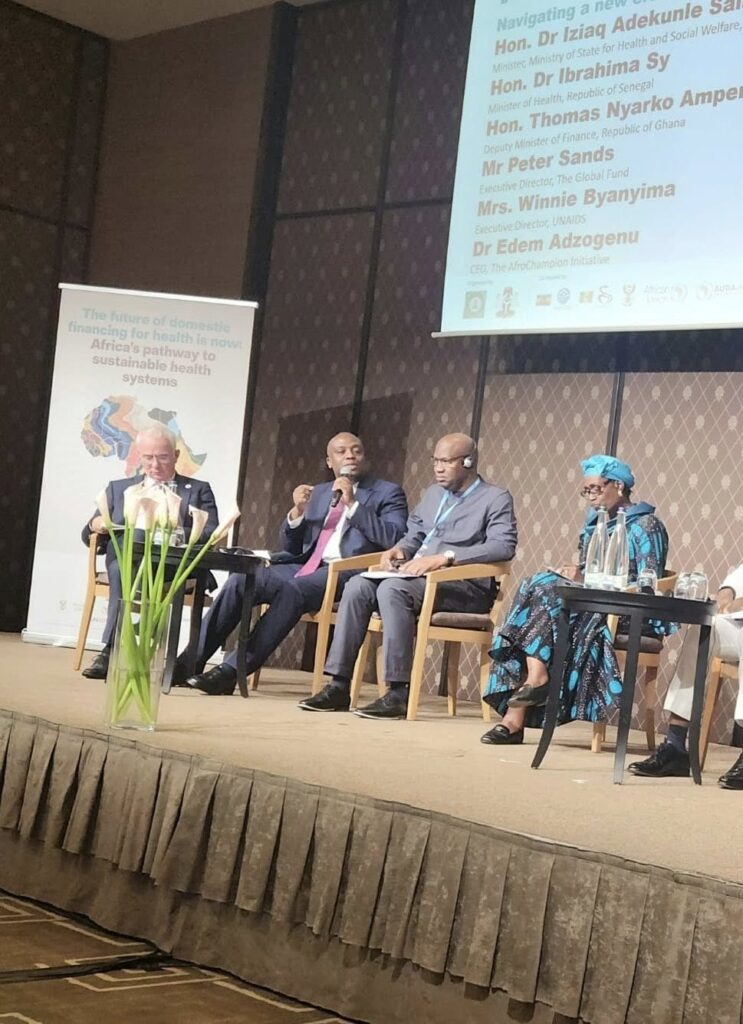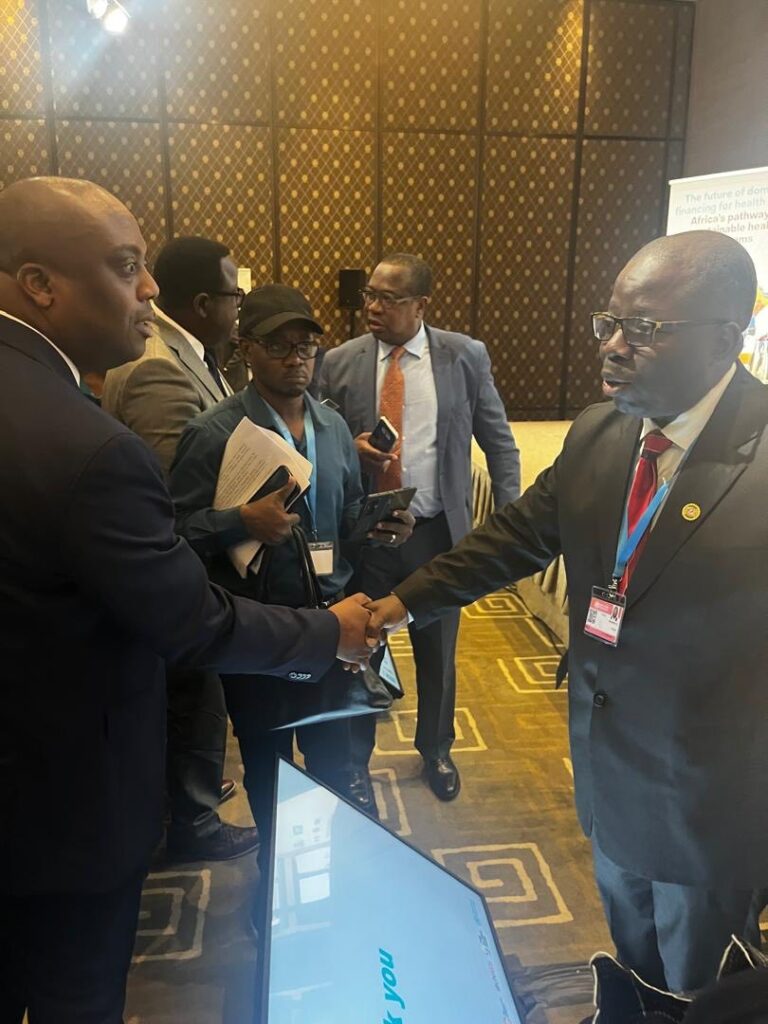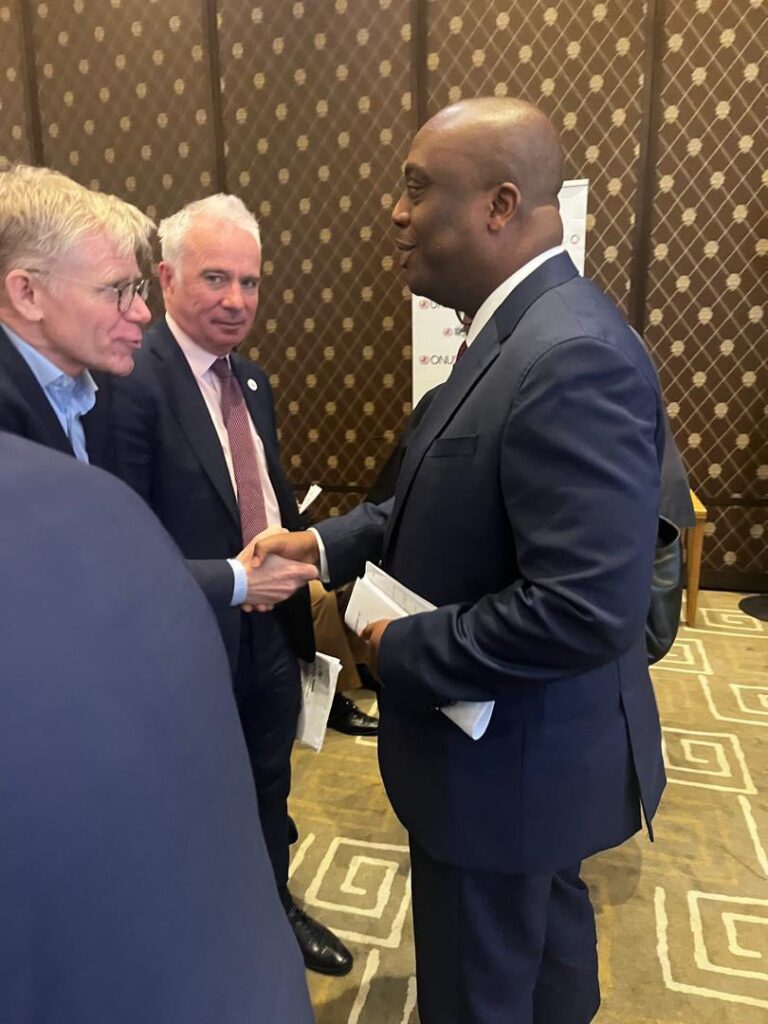Ghana’s Deputy Minister of Finance, Hon. Thomas Nyarko Ampem, has underscored the significant strides the country is taking to overhaul its healthcare financing architecture in response to declining donor support and increasing health demands.
Speaking with global delegates at the 78th World Health Assembly in Geneva on “Navigating a New Era of Global and Domestic Health Financing,” Hon. Ampem underscored the urgency of insulating Ghana’s health system from the unpredictability of external aid by deepening domestic resource mobilisation and harnessing innovative funding models.
The Deputy Minister described Ghana’s evolving approach as a deliberate shift in fiscal strategy, one that emphasizes primary healthcare, preventative services, and more robust public-private sector collaboration.
“External aid is no longer a reliable solution. We must prioritize prevention, repurpose budgets, and unlock new investment through good governance and innovation.”
Hon. Thomas Nyarko Ampem, Ghana’s Deputy Minister of Finance
For Ghana and much of Africa, this policy reorientation comes at a crucial time. Africa’s vulnerability to global financial fluctuations and donor fatigue is evident, as the World Bank estimates that the continent’s average health expenditure per capita is only US~$47, a fraction of the over US$ 4,000 spent in high-income countries.
Countries are rushing to close growing budget deficits as a result of the decline in foreign aid. For example, Ghana is in shock over the sudden loss of US$78 million in USAID health aid that had previously supported child health, HIV/AIDS, and malaria programs.

Mitigating External Funding Cut
To mitigate the impact of these funding cuts without increasing public expenditure, the Deputy Finance Minister disclosed that Ghana is making good use of technology.
According to him, the government has partnered with Zipline, a drone logistics company, to ensure the continued delivery of medical supplies across hard-to-reach areas.
“Being responsive to change is critical. We leveraged technology and logistics to close urgent supply gaps and maintain continuity of care.”
Hon. Thomas Nyarko Ampem, Ghana’s Deputy Minister of Finance
Central to Ghana’s domestic health financing push is the reallocation and expansion of funds through the National Health Insurance Scheme (NHIS).
The 2025 budget marks a historic commitment to the scheme, with GH¢ 9.8 billion earmarked — a significant jump from GH¢ 5.9 billion in 2024, representing a 66 per cent increase.
Over the medium term, the government plans to allocate a staggering GH¢ 49.3 billion to NHIS, a leap from the GH¢ 13.2 billion invested between 2021 and 2024.
This increase, Hon. Ampem said, is made possible by ensuring that National Health Insurance Levy (NHIL) revenues are used solely for their intended purpose.
The strategy, according to the Deputy Finance Minister, is not just about spending more but spending smarter.

Since January 2025, the government has doubled down on preventative healthcare by expanding access to clean water, improved sanitation, nutritious food, and immunisation programs — interventions Hon. Ampem described as “foundational” and “more cost-effective than treating diseases.”
These efforts reflect a broader ambition to ensure that the country’s healthcare system is not only sustainable but also more resilient to future shocks.
Increasing Domestic Tax Revenue
Further bolstering these efforts is Ghana’s drive to increase domestic tax revenues, which in sub-Saharan Africa average just 13 per cent of GDP, by digitalising tax administration, reducing revenue leakages, and broadening the tax base.
Ghana is also exploring greater private sector involvement through Public-Private Partnerships (PPPs), which could help deliver critical health infrastructure and services.
A major highlight of Hon. Ampem’s address was the launch of the Ghana Medical Trust Fund, known as MAHAMACARES.
This fund is designed to finance treatment for non-communicable diseases that fall outside the NHIS coverage, while also attracting private sector and philanthropic investment into health research and infrastructure.
According to the Deputy Minister of Finance, the move marks a bold step toward innovative financing, with the potential to transform how health services are delivered and sustained in Ghana.
However, Hon. Ampem was quick to caution that such ambitions hinge on stronger governance and macroeconomic stability, both of which are prerequisites for attracting and retaining private capital.

He cited the 2024 Mo Ibrahim Index, which reveals that governance has declined in nearly half of African countries over the past decade. “Without fiscal discipline, we cannot build the systems that attract long-term investment,” he warned.
As Africa’s population expands and its geopolitical significance grows, Hon. Ampem urged countries on the continent to act with “urgency, unity, and foresight.”
He called for a shared commitment to building health systems that are not only responsive to current needs but resilient against future challenges. “This is our opportunity to build resilient health systems for the future,” he declared.
He stressed that Ghana’s model of structural fiscal reform, innovation, and preventative care could offer a blueprint for countries across the region grappling with similar health financing crises.
READ ALSO: Ghana’s Energy Transition: Calls for Coordinated, Inclusive Strategy



















